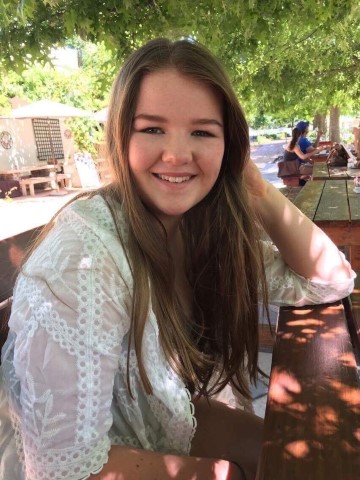Search
Showing results for "clinical trials"
Research
Morbidity in survivors of child and adolescent meningiomaGiven the paucity of data concerning long-term outcome, the authors undertook a meta-analysis to analyze morbidity in survivors of this disease.

News & Events
Georgia wants to be part of the solutionGeorgia Egan, 16,recently completed a six-month Hybrid Closed-Loop Outpatient Trial, the longest and largest at-home trial of a hybrid closed-loop insulin pump.
Research
Small-molecule screen reveals synergy of cell cycle checkpoint kinase inhibitors with DNA-damaging chemotherapies in medulloblastomaMedulloblastoma (MB) consists of four core molecular subgroups with distinct clinical features and prognoses. Treatment consists of surgery, followed by radiotherapy and cytotoxic chemotherapy. Despite this intensive approach, outcome remains dismal for patients with certain subtypes of MB, namely, MYC-amplified Group 3 and TP53-mutated SHH. Using high-throughput assays, six human MB cell lines were screened against a library of 3208 unique compounds. We identified 45 effective compounds from the screen and found that cell cycle checkpoint kinase (CHK1/2) inhibition synergistically enhanced the cytotoxic activity of clinically used chemotherapeutics cyclophosphamide, cisplatin, and gemcitabine.
Research
Early nutrition and its effect on allergy developmentNutrition is one of the most easily modifiable environmental factors during early life that may play a role in allergic disease prevention.

The vision of the Perioperative Medicine Team is to make discoveries that will improve children’s perioperative care and lead to global practice change.
Research
European Respiratory Society guidelines for the diagnosis of primary ciliary dyskinesiaGuideline to provide evidence-based recommendations on diagnostic testing for primary ciliary dyskinesia

Predicting disease progression in cystic fibrosis ABSTRACT Introduction: Progressive lung disease is the major cause of morbidity and mortality in
Research
Robust and Interpretable General Movement Assessment Using Fidgety Movement DetectionFidgety movements occur in infants between the age of 9 to 20 weeks post-term, and their absence are a strong indicator that an infant has cerebral palsy. Prechtl's General Movement Assessment method evaluates whether an infant has fidgety movements, but requires a trained expert to conduct it. Timely evaluation facilitates early interventions, and thus computer-based methods have been developed to aid domain experts.
Research
Supporting Maternal and Child Mental Health Through Dietary Changes Focused on the Gut MicrobiotaGrowing evidence from preclinical studies, epidemiology, and randomized controlled trials supports a causal role for diet quality in mental disorder risk, and clinical psychiatric guidelines now place diet, along with other life-style behaviors, as foundational treatment targets for mood disorders.
Research
Use of bevacizumab as a single agent or in adjunct with traditional chemotherapy regimens in children with unresectable or progressive low-grade gliomaBevacizumab is well tolerated and appears most effective for rapid tumor control to preserve vision and improve morbidity
